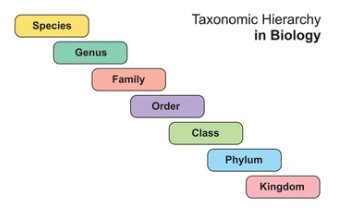Plant taxonomy studies the origins, affinities, and evolutionary development of different groups in the plant kingdom. That is to say, the complex plant kingdom is classified into different categories down to the species and arranged in a systematic manner to facilitate people's understanding and utilization of plants. Depending on the nature of the organisms and their taxonomic characteristics, a high diversity of plant data needs to be collected to determine the affinities of the organisms.

Lifeasible provides botanical, horticultural, genetic, cytological, and cytogenetic, molecular biological, serological, taxonomic, and statistical methods to study, analyze, and determine the taxonomic status of plants and their affinities. We aim to analyze the genetic diversity of various plants and reveal the kinship relationship between different germplasm at the molecular level, which is an essential reference for researching the law of plant genetics and breeding varieties.
- Genetic methods: We use sexual hybridization to identify the affinity of plants based on their affinity and cross-fruiting rate and the fertility of the progeny.
- Cytological and cytogenetic methods: We analyze and identify the relatives by the differences in chromosome numbers and their karyotypic features.
- Molecular biology methods: We apply modern chemistry, physics, biochemistry, Random amplified polymorphic DNA (RAPD), and other basic theories and experimental techniques to identify the kinship of plant varieties, such as using protein serum identification method to determine the kinship of plant varieties.
The identification of plant taxonomic status and affinities is of great importance:
- Accurate identification of the original plant species of medicinal herbs to ensure the scientific nature of production and research of medicinal herbs and the safety of medication.
- Utilizing the kinship relationship between plants to search for new medicinal plant resources and substitutes for the shortage of medicinal herbs.
- Provide a basis for the investigation, development, utilization, protection, and cultivation of medicinal plant resources.
- Contribute to plant exchanges.
Applications of Plant Taxonomic Status and Kinship Identification
- Plant classification and resource protection and utilization: Establish a plant resource database, geographical information management system, and species rapid identification system to provide guidance and scientific support for the protection of biological diversity and the exploration and utilization of resources.
- Phylogeny and biogeography: Study the origin and evolutionary history of various plant categories, reconstruct the tree of plant life, and provide a theoretical framework for studying plant life phenomena.
- Adaptive evolution and conservation genetics: Study the genetic variation and differentiation of plants and their relationship with the environment, reveal the patterns and mechanisms of speciation, and explore the molecular machinery of adaptive evolution. Carry out research on conservation genetics of endangered plants and resource plants and explore species endangerment management and protection strategies.
- Evolutionary development and genomics: Study the origin, variation, and development mechanisms of plant organs and structures and reveal the evolutionary mechanisms of critical traits. Study the structure, function, and evolution of plant genomes, explore the origin, differentiation, and functional significance of essential gene families, and reveal the relationship between phenotype, genes, and environment and their evolutionary mechanisms.
If you are interested in our services, please contact us for the best solutions to identify plant taxonomic status and kinship.
Our products/services are For Research Use Only. Not For Clinical Use!
